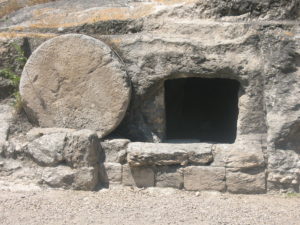After watching my Dad and in my twenty some years in the workplace, mostly spent as a middle manager, I found that executives are also human. And that comes with all the frailty humans bring into their interactions with others. This includes self-doubt, wanting to prove themselves and a desire to be valued for the gifts and talents they bring to the table.
On the other side are the people they manage who have those same desires. Often to them, however, success isn’t measured by a title or salary, it is by getting shit done. Checking off the list and moving onto the next thing. This doesn’t mean they don’t want to understand or even be part of the development of the strategy. They do – and they want to see the results of those efforts. They want to experience the thrill of the strategy being executed and obtaining goals. They want to get shit done.
These might be individual contributors like my Dad was or they could be middle managers like me. When these two levels come together – the middle manager or individual contributor and the executive – there is bound to be conflict.
Sometimes the conflict is on the how, and more often is it on the what. Newer leaders often say, “hey, what if we did xyz?” and portray it as an original idea, as their own. When in reality, last week or even last year, the middle manager or individual contributor did just that or even mentioned we should do xyz. However, the newer leader or executive needs to leave their imprint. To put it bluntly, like a dog, they need to piss on another’s work or ideas to establish their territory.
It doesn’t take much to realize how demotivating this is to the team. I’ve seen it happen. The team disengages, doesn’t feel empowered and just waits to be told to do the next big “original” idea that is going to ‘fix’ what is broken. In the meantime, the team moves blithely along doing what works for them because even if they did want to contribute differently, it would be devalued or stolen as an executive initiative.
It is obvious as I write this to see that this behavior isn’t helpful to grow, expand or motivate people or evolve an organization. What should be done? First, start by releasing the ego. This is the first, and hardest thing for executives to do. They reached the heights they did because of their egos and to let go of that, to take a more servant leader approach, is threatening to them. It means change – and for as much as executives talk about change management they aren’t good at it – especially when one of life’s main (de)motivators gets in the way – fear. Fear of losing their job, fear of not looking smart and fear of not looking capable. Fear is behind the executive leaders behaviors – including behaving like a dog and staining their territory.
To overcome the dog syndrome is to be self aware and curious. Be aware when you as an executive leader are peeing on your team. How do you do this? Before spewing an idea, ask your team and be curious. “What do you think if we…” Or, I’ve noticed you’ve been doing things this way and it looks more complicated than it needs to be. Is that a right observation? What would help you do your job better?” And the all time classic, “Have you all ever done this before?”
This simple starting point of curiosity will acknowledge your teams competence, without diminishing yours. It also is a step to inviting your team into new ideas or changes, making them not just part of the solution, but part of the ideation, growth, evolution. You’ll ignite a spirit of possibilities to get to the heart of their motivation – getting shit done.
Not only will you bring out the best in your team to move your organization forward, you will also bring out the best of yourself.



